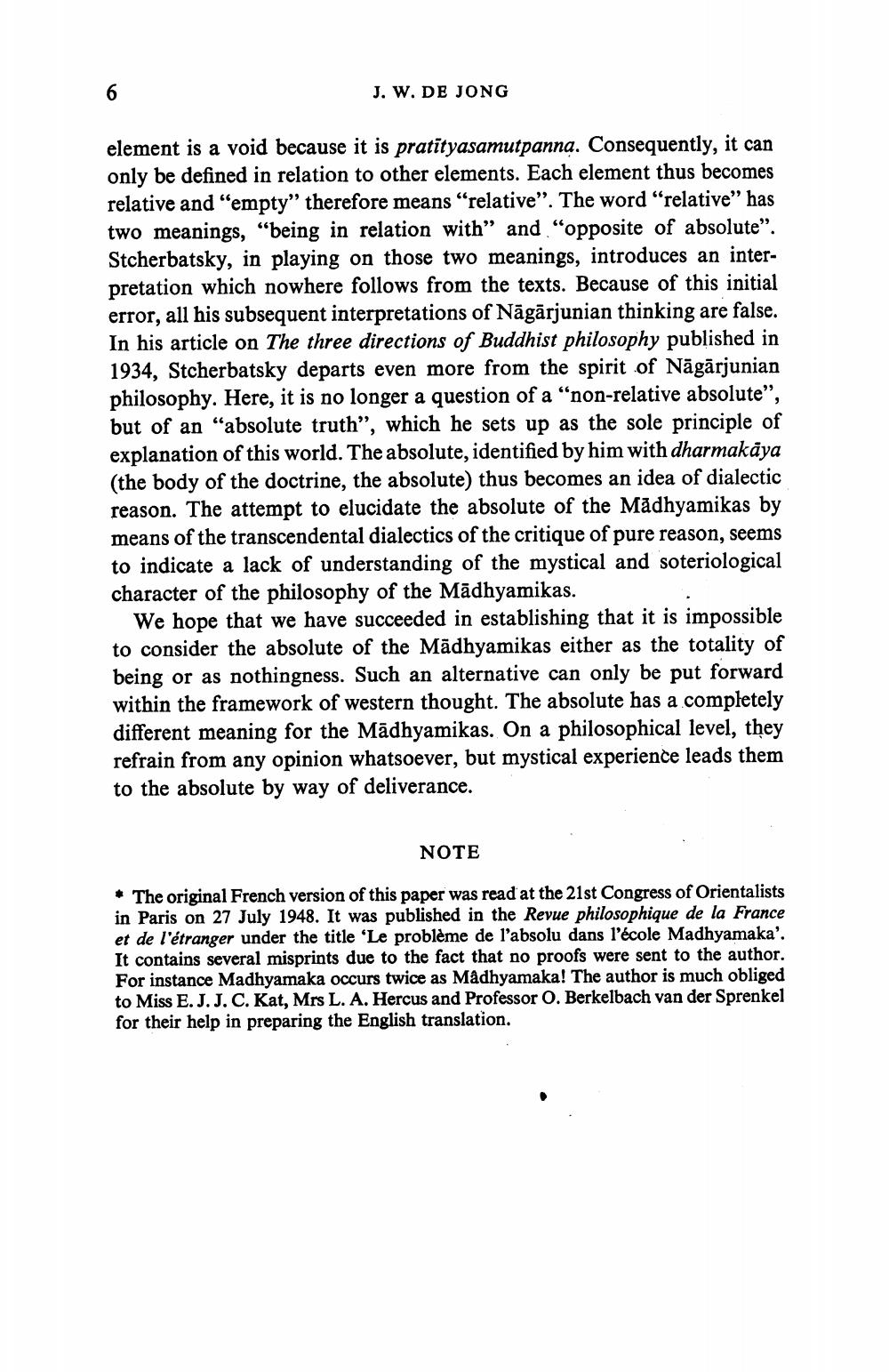________________ J. W. DE JONG element is a void because it is pratityasamutpanna. Consequently, it can only be defined in relation to other elements. Each element thus becomes relative and "empty" therefore means "relative". The word "relative" has two meanings, "being in relation with" and "opposite of absolute". Stcherbatsky, in playing on those two meanings, introduces an interpretation which nowhere follows from the texts. Because of this initial error, all his subsequent interpretations of Nagarjunian thinking are false. In his article on The three directions of Buddhist philosophy published in 1934, Stcherbatsky departs even more from the spirit of Nagarjunian philosophy. Here, it is no longer a question of a "non-relative absolute", but of an "absolute truth", which he sets up as the sole principle of explanation of this world. The absolute, identified by him with dharmakaya (the body of the doctrine, the absolute) thus becomes an idea of dialectic reason. The attempt to elucidate the absolute of the Madhyamikas by means of the transcendental dialectics of the critique of pure reason, seems to indicate a lack of understanding of the mystical and soteriological character of the philosophy of the Madhyamikas. We hope that we have succeeded in establishing that it is impossible to consider the absolute of the Madhyamikas either as the totality of being or as nothingness. Such an alternative can only be put forward within the framework of western thought. The absolute has a completely different meaning for the Madhyamikas. On a philosophical level, they refrain from any opinion whatsoever, but mystical experience leads them to the absolute by way of deliverance. NOTE * The original French version of this paper was read at the 21st Congress of Orientalists in Paris on 27 July 1948. It was published in the Revue philosophique de la France et de l'etranger under the title 'Le probleme de l'absolu dans l'ecole Madhyamaka'. It contains several misprints due to the fact that no proofs were sent to the author. For instance Madhyamaka occurs twice as Madhyamaka! The author is much obliged to Miss E. J.J. C. Kat, Mrs L. A. Hercus and Professor O. Berkelbach van der Sprenkel for their help in preparing the English translation.




